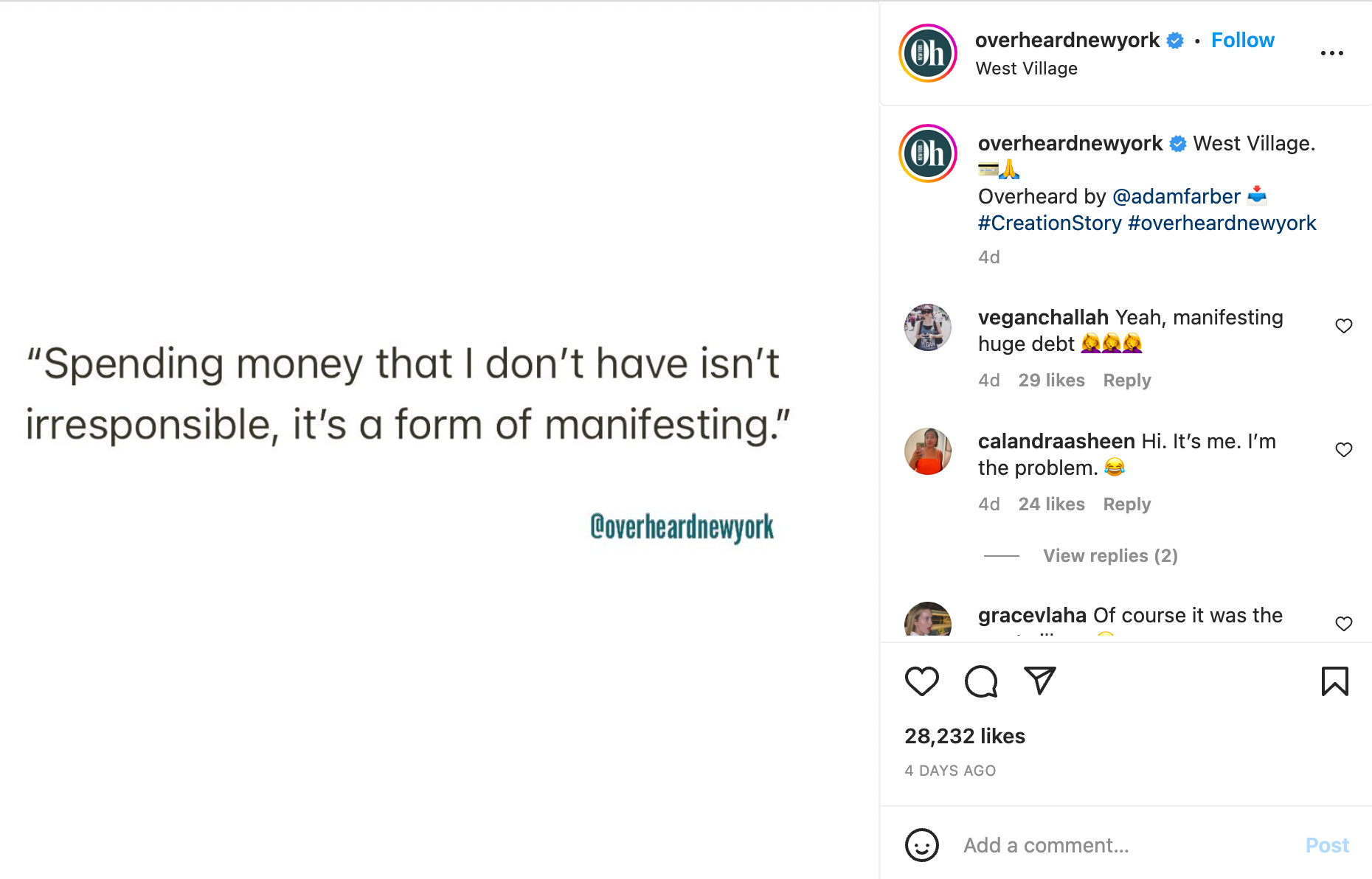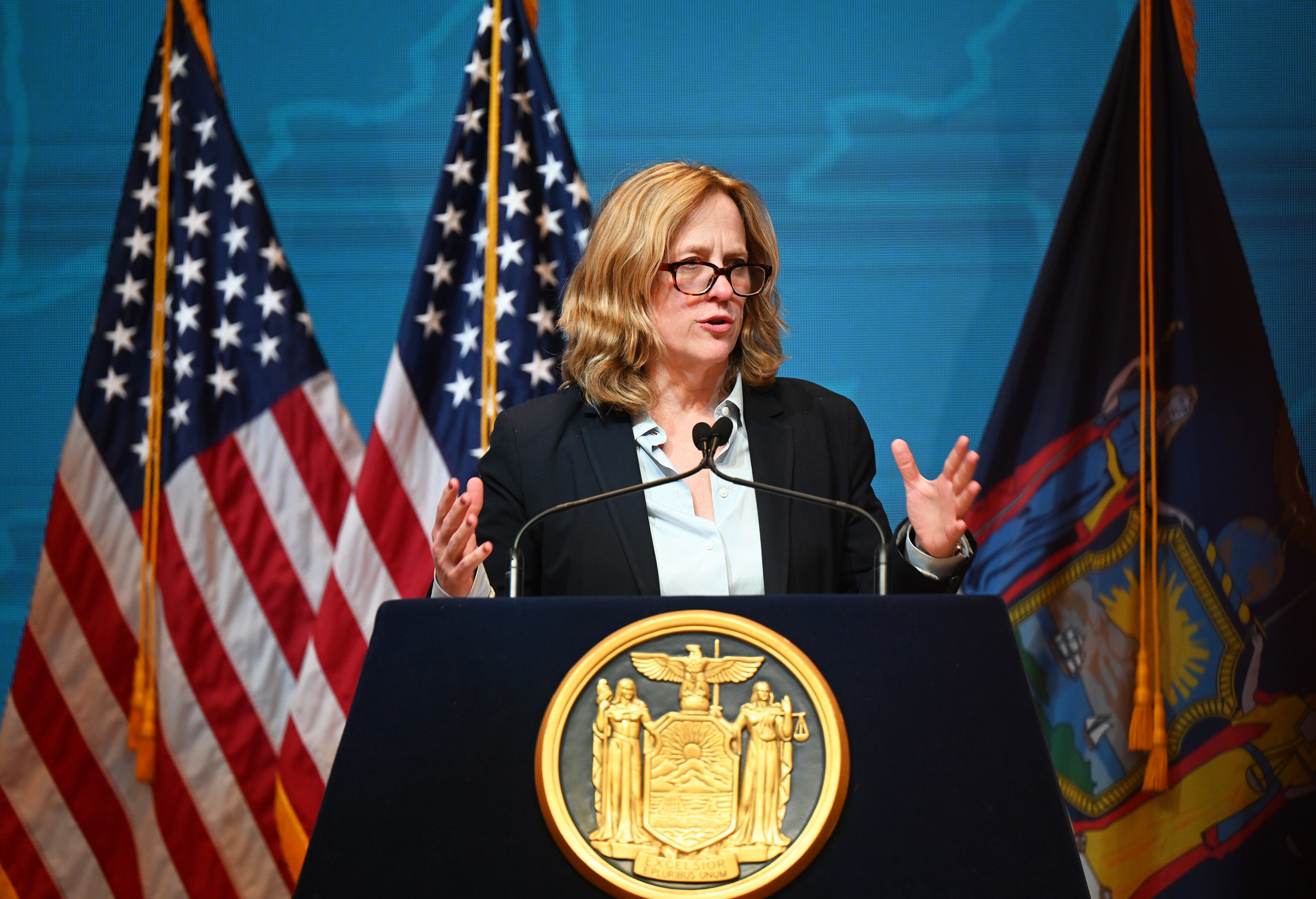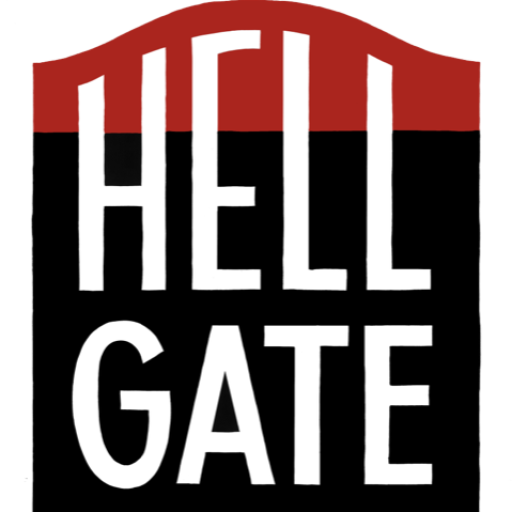Adams' Harsh Mental Illness Policy 🗽 Farmers and Food Justice 🗽 New School Faculty Hold the Line 🗽

Written by:
This is the newsletter of OptOut New York, a program of the OptOut Media Foundation led by Samira Asma-Sadeque. OptOut maintains a free news aggregation app for exclusively independent media that's available for Apple and Android devices. Find out more about the app at optout.news.
I’m OptOut New York Editor Samira Asma-Sadeque, here to bring you the most important New York updates from the best of independent media. Follow along for all things New York: our stories, rants, and GIFs.
Today we look at Eric Adams’ policy on the mentally ill, an initiative for Black farmers across the state, an epic faculty strike, and the main thing getting you and me through the news cycle: weed.
It’s been a bleak week for New York, with Mayor Adams announcing his new policy on involuntary evaluation, or hospitalization, of the mentally ill.
It’s a bit unclear, if not surprising, what Adams is really trying to address with his draconian new policy that will admit people with (or without) mental illness against their will. Adams issued the directive last week, which interprets a state law so as to give police, or "peace officers" (lol), the power to take into custody anyone who "appears to be mentally ill" and is exhibiting a "manner likely to result in serious harm to self or others" or who "displays an inability to meet basic living needs, even when no recent dangerous act has been observed," which is just a sanitized way of referring to the unhoused community.
where do the unhoused even go when they’re facing an "inability to meet basic living needs?" Earlier this year, while reporting on the targeted killings of two unhoused men, I learned that some members of the city’s unhoused community would rather live on the streets than live in the shelters. That’s how bad it can be out—er, in—there.
CITY LIMITS points out that Adams’ policy was announced as the weather got colder, pushing many unhoused people to resort to subway cars and stations. Advocates say this is not going to help anybody.
Donna Lieberman, the New York Civil Liberties Union's executive director, has called the policy “a page from the failed Giuliani playbook.”

who has traditionally been left out of—or straight-up been discriminated against—in the agriculture industry? Black farmers, who are often offered discouragingly high-interest loans, or who find it challenging to trust lenders due to lack of representation. Not to mention that the pandemic already made it more financially difficult for farmers across the board to retain, or obtain, land. For Black farmers, this was just a pile-on atop a history of discriminatory practices.
THE CT MIRROR republished this story from Capital B News that says:
Between 1910 and 2007, the USDA denied loans to women and people of color at higher rates than it did to white men, which contributed to the billions of dollars in land loss. During that same period, Black farmers lost 80% of their farmland.
The Black Farmer Fund addresses these concerns and only in the last year raised over $1 million in funding to assist eight Black farmers, herbalists, and food businesses in the state.
Olivia Watkins, one of the founders, says this is their way of "just making sure that we’re contributing to the larger movements of food justice and racial justice that has been here way longer than we have."
This is the kind of story I want to be waking up to on a Tuesday morning. Read it here:

I know we’re on the brink of a recession and I’ve seen eggs priced at nearly $9 at my grocery store, but ‘tis the season to practice this energy while shopping:

what does the weed market look like more than a year after marijuana was legalized in New York? More like, what are some concerns that remain?
FAQ NYC speaks with journalist Ashley Southall, who expresses her concerns about the market being unregulated or having lack of enforcement. At the same time, the issue of enforcement is tricky for the city with a legacy of disproportionately punishing Black and Brown people over marijuana possession.
Listen to the conversation:

when do falsely charged inmates in New York City get an opportunity to show their exculpatory alibi? It can take years for those in Queens because the District Attorney’s office makes it extremely difficult to get alibis to prosecutors, HELL GATE NYC reveals. Their report follows the stories of two men, Barry Hall and Pharaoh Ferguson, who spent three years on Rikers Island despite there being evidence, including surveillance footage, that would have cleared them.

why was a recent offer made by the New School rejected by 95% of the members of the adjunct faculty who have been on strike for three weeks? The offer included “higher costs for health care and reduced access to the grievance process,” according to striking members, as reported by THE CITY. Following this rejection, the New School and ACT-United Auto Workers Local (UAW) 7902, the union representing the part-time workers, entered mediation, which gave some members a glimmer of hope.
“It’s winning the battle but not yet winning the war. We remain committed to winning a fair contract,” Alex Robins, a fashion history professor at the New School’s Parsons School of Design, told THE CITY.
According to the ACT-UAW 7902, the mediation was ongoing as of Monday, and the New School is feeling the burn, with events being canceled and massive outrage over its attempted solicitation of “temporary ‘Progress Reviewers’” to fill the roles of the striking part-time faculty members. The New School has since partially denied this, claiming the memo was an “unapproved draft” not meant to be sent out. Oh well.

YOU KNOW YOU WANT TO DO THIS
A newsletter for New Yorkers is nothing without the voice of New Yorkers. Send us your favorite or annoying New York moment, whether it’s on the subway or with the pigeons or overhearing tourists. We’ll pick our favorite to highlight in the next newsletter. Email newyork@optout.news!
See you again the week of Christmas/Hanukkah/Kwanzaa/People sleeping in.🗽
The OptOut Media Foundation (EIN: 85-2348079) is a nonprofit charity with a mission to educate the public about current events and help sustain a diverse media ecosystem by promoting and assisting independent news outlets and, in doing so, advance democracy and social justice.
Download the app for Apple and Android.
Sign up for OptOut's free newsletters.
Learn more about OptOut.
Follow us on Twitter, Instagram, TikTok, YouTube, Mastodon, and Facebook.










